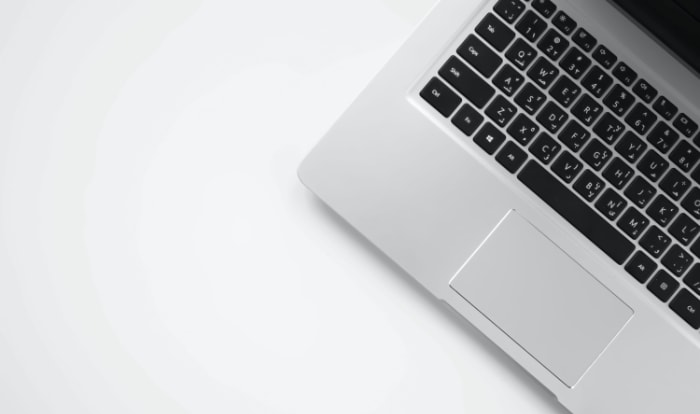Laptop Fan Making Grinding Noise (How to Fix)
Once you get used to a quiet running PC, there’s no going back- it just helps you focus on your work so well. That is until your laptop starts acting up and its fan starts spinning loudly for no apparent reason.
When this happens, it is essential to run some checks on your laptop, not just because you want to get your work done in a super calming and quiet environment, but also because this loud or “grinding” noise may either indicate that there is something wrong with your laptop, or that you have been handling/taking care of it incorrectly.
To clarify, we aren’t talking about the sound of your laptop’s fan that is normally emitted when the fan starts running; we’re talking about a noticeably louder fan sound that runs longer than usual.
This is what we will be discussing today. We’ll start our discussion with the possible reasons why your laptop’s fan might be acting up like this, and then we will talk about possible fixes to this issue, depending on what caused it.
What Causes My Laptop’s Fan to Make Grinding Noises?
Here are some main reasons why your laptop’s fan has started acting up. Pay close attention to this section- it will directly feed into the section where we discuss the solutions to your fan’s problem.
Dust Problems
Dust begins to accumulate inside even the most carefully designed laptops over time. Of course, it doesn’t help if you frequently use your laptop in outdoor settings and don’t use a protective sleeve to put it in when you’re done.
When enough dust accumulates around or inside your laptop’s cooling fan, it can start impacting the speed with which it rotates- or cause it to deteriorate while it grinds against the dust.
This is when you will hear your laptop’s fan make a louder-than-usual sound that sounds like something is grinding inside.
But a deteriorating/slow-running fan will be the least of your problems. Cooling fans fit into laptops to regulate the temperature of their internal components- especially the CPU.
If accumulated dust causes your fan to act up, your device’s internal hardware will heat up, not get sufficient cooling, and potentially get damaged.
In extreme cases, accumulated dust will render your laptop’s cooling fans completely dysfunctional- causing your laptop’s internal hardware to receive no cooling at all.
This can do some serious, irrecoverable damage to your device- especially if you unknowingly jump on to perform a CPU- intensive task on your laptop.
No Air Circulation
All laptops come with air vents (usually towards the back side) that let the air from the cooling fans out. Without these vents, your laptop’s internal hardware will heat up beyond normal temperatures (even if you’re doing light work).
This will cause your laptop’s fans to run even faster (an attempt at cooling the internals) and sound even louder, but it will turn into a vicious cycle of your laptop heating up.
Eventually, your laptop will either get damaged internally, or the cooling fans will stop working altogether.
This problem commonly arises when you use your laptop on soft, mushy surfaces like beds, pillows, and couches. The laptop sinks into these materials, and its vents get entirely blocked out, causing the issue to arise.
Overworked Fans
If you use your laptop for long hours of CPU-intensive work like high-end graphic design, professional-level gaming, or intense video editing, your laptop’s fan will constantly be under work (because this is when the CPU and other internal hardware heats up the most).
Now, most laptops- especially gaming or high-end laptops- are designed to endure hours of workload like this.
However, as with everything, they, too, have a limit. After a certain point, your fans can become overworked, and they may start working improperly- speeding up or slowing down every now and then. This is when you’ll notice your fans running louder than usual.
There’s Something Inside
Sometimes, small particles or pieces of internal hardware (like the plastic of your fan’s case) can break off and fall into a running fan. When this happens, you will hear a grinding sound each time your laptop’s fan powers up and starts running.
Rusting
While laptop cooling fans are usually made of plastic, the motor that runs it and other pieces that hold them together, like screws and bolts, are made of metal. These parts tend to rust over time- especially if you work in humid conditions. This rust can cause the fan to roar loudly when it starts running.
Deteriorated Cooling Fan
Like any other piece of electronic equipment, your laptop’s fan can potentially malfunction and deteriorate- whether it is a motor or a wiring issue, this can happen to you at some point randomly.
One of the ways such an issue might manifest is that the motor will speed up on its own. This will result in the loud and annoying sound we all loathe when we’re trying to focus.
Faulty Software
Your laptop’s cooling fan is only an organ that receives instructions about when and how to run by the CPU (the brain). If your computer’s software is glitching or has issues, it may send signals to your laptop’s cooling fans to start running randomly- emitting loud fan noises.
Surrounding Temperature
Even when you’re performing light tasks on your laptop, your laptop can overheat if it is kept (or recently was kept) in hot places. This will cause your fan to start up in an attempt to cancel off the heat in your laptop. The hotter your laptop is, the faster (and hence louder) your laptop’s cooling fan will run.
You’re Running Too Many Background Apps
Background apps, tasks, and programs burden your CPU significantly. This will cause your CPU to heat up, and your device’s fans will respond by running faster. The more intensely your CPU is burdened, the faster the fans will run, and the louder the sound you’ll hear your PC make.
How Can I Fix My Laptop’s Fan That’s Making Grinding Noises?
Now that we’re done with discussing the main causes behind your laptop’s cooling fan acting up and making annoying and loud grinding noises, we can move to discuss the different ways you can fix this problem.
Each method’s relevance will depend on the cause of the problem, so make sure you identify the cause (if you can) before trying to fix it.
Remove Malware
Use this method if you find malfunctioning software behind your fan acting up. One of the ways you can identify whether a software issue caused your fan problem is by assessing whether your laptop is unusually running all applications slowly- especially the lightest applications. If they do, it is a sign of malware on your PC, and you need to remove it fast.
Use windows defender (or any other antivirus software on your PC) to clear your PC of any malware or corrupted files.
Close Background Apps, Tasks, and Programs
Even the most powerful devices can only run so many tasks, apps, and programs simultaneously. Multi-tasking is great, but If you’re in the habit of leaving apps running in the background after you’ve used them, you might want to reconsider your habit.
But before you do this, you need to check whether an overburdened CPU is causing this issue. To do this, head towards your task manager by pressing Ctrl + Alt + Delete on a Windows PC. Mac users can do this by heading to the Activity Monitor program.
Here, you will be able to see every app, task, or program that is taking up your CPU’s power (and how much power it is taking). If your CPU doesn’t have that many apps weighing it down, the cause might be something else.
If it is, close any apps you aren’t using. If that doesn’t work, try closing all apps and then restart your PC.
When would you know that your PC is overburdened? Well, the task manager and activity monitor let you view your CPU’s workload in percentage form, meaning that you’ll be able to see what percentage of your CPU’s processing power is currently being used by the apps, tasks, and programs that are being run.
A good rule of thumb would be to consider any figure above 80% to mean bad news. So, if that’s the case, unburden your PC immediately by closing all of these apps and sticking to only the ones you’re using right now.
Install a CPU Cooling Software
No matter what events lead to it, a heated CPU is one of the main (and few) reasons why your laptop’s fan starts sounding louder than usual. Naturally, a good way to solve this issue is to do everything you can to ensure that your CPU is as cool as possible.
For this reason, exactly there is CPU cooling software out there you can add to your laptop, which will help your CPU keep cool. This software will do this in two ways.
First, the software keeps track of each component’s temperature and speeds up or slows down your laptop’s fans accordingly, and second, this software will clear out (with your permission) any junk files cluttering up your PC’s RAM and slow it down.
This may sound like treating a symptom rather than curing the issue, but this method has a lot of practical benefits. Besides, there’s no reason you can’t do this and simultaneously resolve the main cause behind this issue.
Get a Laptop Stand
This will help you use your laptop while seated in soft places like your bed. A laptop stand will keep your laptop at a decent height and prevent soft materials from stuffing next to your laptop’s air vents- preventing any heating issue that a blocked air passage would cause.
Clean Your Laptop’s Fan
Since this involves opening up your laptop and dealing with sensitive internal equipment, we strongly advise that you get this done through an expert technician to minimize the risk of any damage to your device. Having your laptop’s fan cleaned every once in a while will prevent your fan from deteriorating because of dust accumulation.
If you do this, you will also be able to detect if there’s any rust forming inside your laptop, i.e., on the fan’s motor, and you will be able to see if there are any broken pieces of plastic or debris stuck in your fan.
Put Your Laptop in a Sleeve and Use It in Cool Environments
To prevent your laptop’s fans from accumulating dust, maintain them properly by using them in clean, dust-free areas, not using them in outdoor settings, putting them into a laptop sleeve after use to prevent dust and other particles from going inside, and using it in places that are cool or have good air ventilation.
Replace Your Laptop’s Fan
If none of these solutions fix your problem, the fan itself might have deteriorated. In this case, you have to get a replacement. The best way (most reliable and with minimum risk) to do this would be to contact the customer support team of your laptop’s brand.
Whatever you do, don’t attempt this on your own. You will risk causing irreversible damage to your laptop, and you’ll void your warranty in the process.
Upgrade the Laptop OS
As we mentioned, your fan can start acting up if it receives incorrect signals from your laptop’s software. Such bugs and faults are usually improved with each software update your laptop goes through- especially when it shifts to a different OS version, i.e., Windows 10 to Windows 11.
Consider upgrading your laptop’s OS to clear the possibility that an OS issue may be causing your problem.
Summary
The table below sums up our entire discussion:
Causes
- Dust accumulation
- No air ventilation
- Overworked fans
- Particles/debris stuck inside fans
- Rusting
- High ambient temperatures
- Software issues
- Too many background apps
Fixes
- Remove Malware
- Close all useless background apps
- Invest in a laptop stand
- Download a CPU cooling software
- Clean your laptop’s fan
- Replace the fan
- Use your laptop in a clean and cool environment
- Upgrade your laptop’s OS






